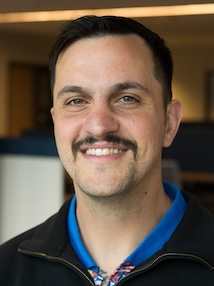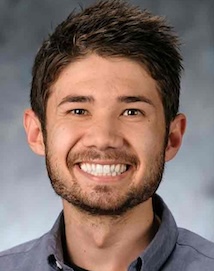The SSRC-Arnold Ventures Criminal Justice Innovation Fellowships support early-career researchers focused on figuring out what works to make communities safer and the criminal justice system fairer and more effective. The fellows are pursuing policy-relevant causal research designed to innovate and evaluate cost-effective and scalable policy solutions that advance the efficacy and equity of criminal justice practices. The fellows will also work with the Arnold Ventures Criminal Justice team to address research questions of particular interest as the team develops and refines its policy strategies. Meet the fellows and learn more about their work below.
2025

Shinjini Pandey
Shinjini Pandey studies inequities and biases in the public safety system and identifies solutions to improve police response outcomes. Pandey’s research includes investigating racial and ethnic bias in 911 call handling, examining how a potential suspect’s race influences dispatch decisions and subsequent police behavior.
2024

Romaine A. Campbell
Romaine A. Campbell studies racial disparities in the criminal justice system. Some of his current research examines how federal scrutiny impacts policing behavior and public safety. He is also exploring the effects of in-prison higher education programs on incarcerated individuals’ outcomes.
Read more on his research here.

Aria Golestani
Aria Golestani is researching how pre-trial diversions—e.g., issuing citations instead of arresting—change outcomes in both current cases and potential future cases, along with life outcomes for the accused. He is also studying how childhood exposure to violence impacts longer-term outcomes decades later.
Read more on his research here.

Zach Porreca
Zach Porreca studies the dynamics that contribute to crime with the goal of identifying effective crime reduction policies, such as how to predict where and when retaliatory gun violence will occur. He is also studying a post-release employment program and how social networks formed in prison affect later outcomes.
Read more on his research here.

Emma Rackstraw
Emma Rackstraw uses tools from labor, experimental, and behavioral economics to understand how personal decisions influence and are influenced by the justice system. Her research examines how perceptions of police change enforcement patterns and how employer hiring decisions are influenced by information about job candidates’ previous interactions with the justice system.
Read more on her research here.

Michael Topper
Michael Topper studies how low-touch changes in police departments, such as new technologies and workforce policies, affect police behavior and community outcomes. His research also connects crime and policing technology to public health outcomes.
Read more on his research here.

Britte van Tiem
Britte van Tiem studies how people’s experiences in prison affect outcomes, both in prison and after release. Her current research examines how prison-based vocational training programs impact later employment. She is also exploring whether cheaper prison phone calls can reduce recidivism by helping people maintain stronger ties to family and friends during their sentences.
Read more on her research here.
